Latest News
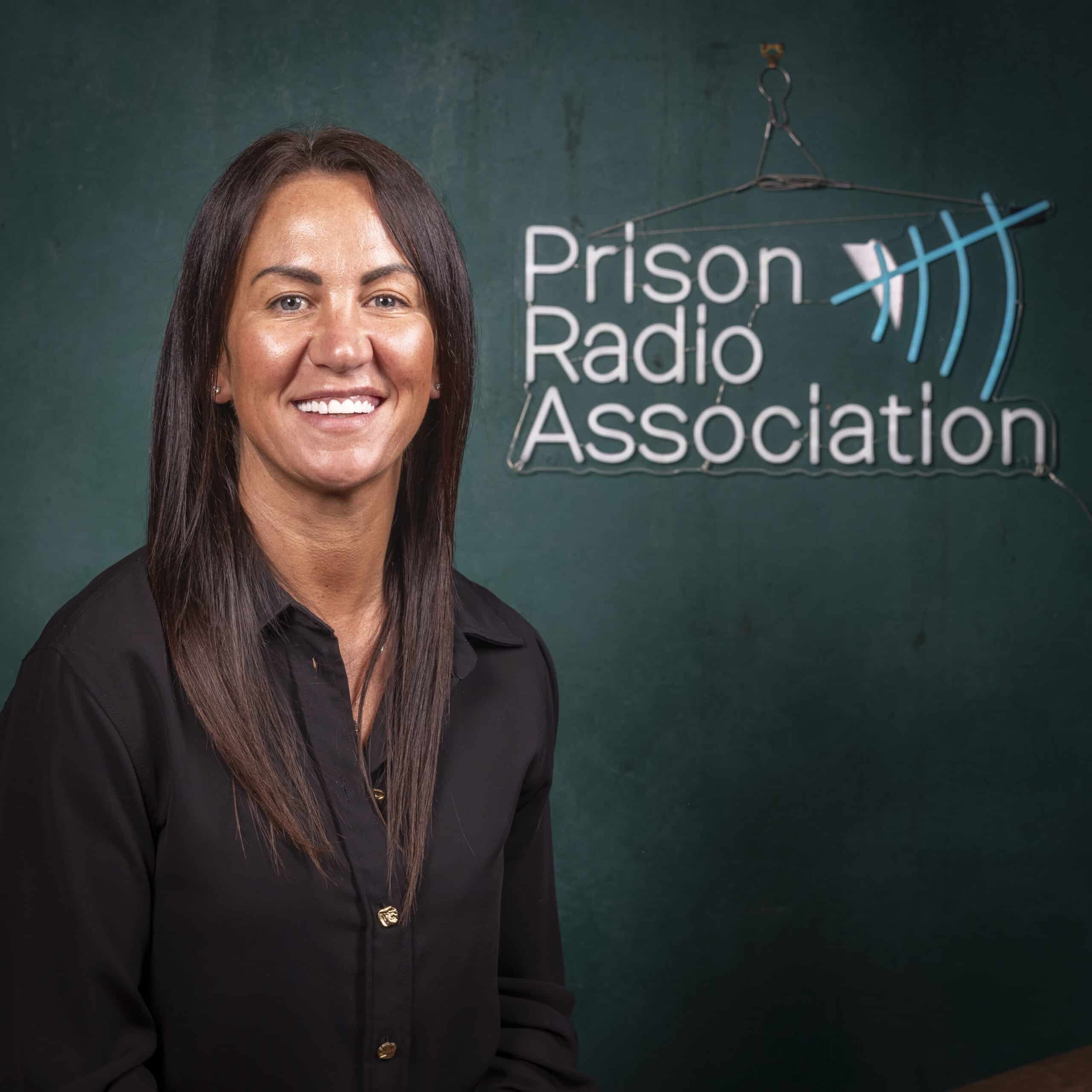
Tweet us@PrisonRadioUK
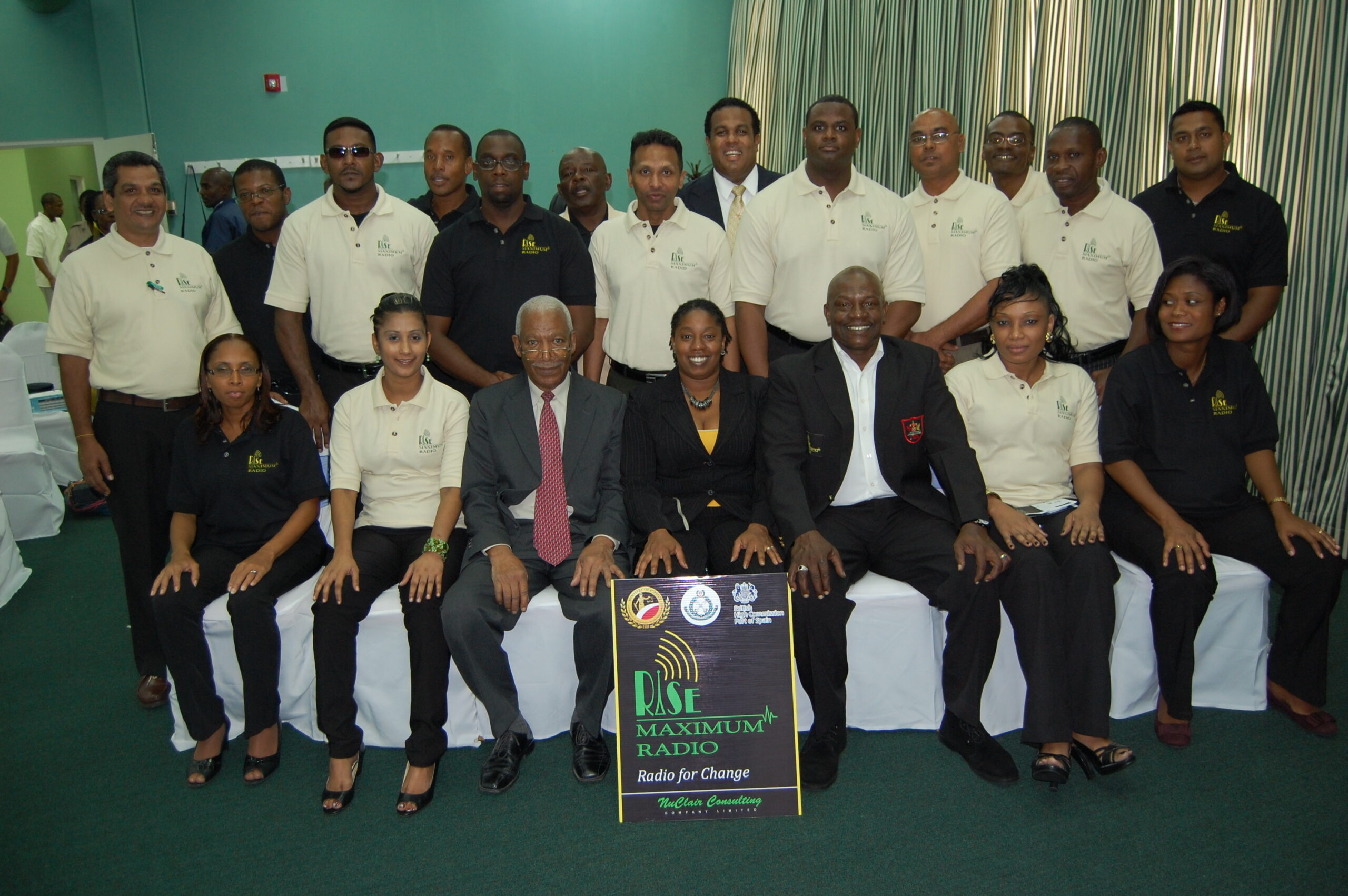
At Prison Radio International (PRI), we believe in the power of audio to bring people together, challenge stereotypes, and give voice to those often unheard. Our mission is to support and connect prison radio projects worldwide – strengthening a global movement that now includes more than 70 projects across 25 countries.
To continue strengthening this growing global movement, we are mapping prison radio projects around the world through our global prison radio survey. This initiative invites those involved in running or developing prison radio projects to share their experiences, challenges, and aspirations. By gathering this insight, we can better support, connect, and amplify the work of this ever-expanding network – ensuring that prison radio continues to thrive as a powerful tool for change.
Welcome to the fourth edition of AMPLIFIED, our blog dedicated to the global prison radio community. Through AMPLIFIED, we bring together stories, updates, and opportunities that connect, inspire, and strengthen our collective mission. By sharing the voices and experiences of those behind prison radio projects worldwide, we celebrate the impact of audio in challenging perceptions, building connections, and transforming lives.
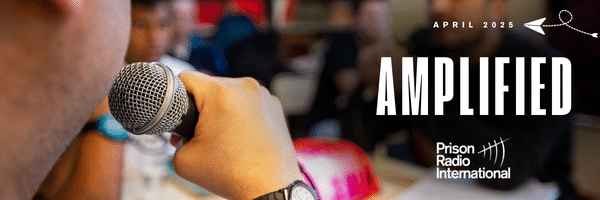
In this edition, we are proud to feature RISE Maximum Radio. RISE (Rehabilitating Inmates Seeking
Empowerment) Maximum Radio (RMR) was launched in Trinidad and Tobago’s Maximum Security Prison in September 2012. Their mission is to harness the power of radio to transform attitudes and behaviours of people in prison and prepare them for successful reintegration into society.
The Prison Radio Association (PRA) has a particularly special relationship with this radio project as we supported the launch of RISE Maximum Radio. The founders were inspired to develop the station after their visit to National Prison Radio in the UK.
We caught up with the team at RISE Maximum Radio to learn more about their project and their vision for using audio to make a difference. Here’s what they had to say:
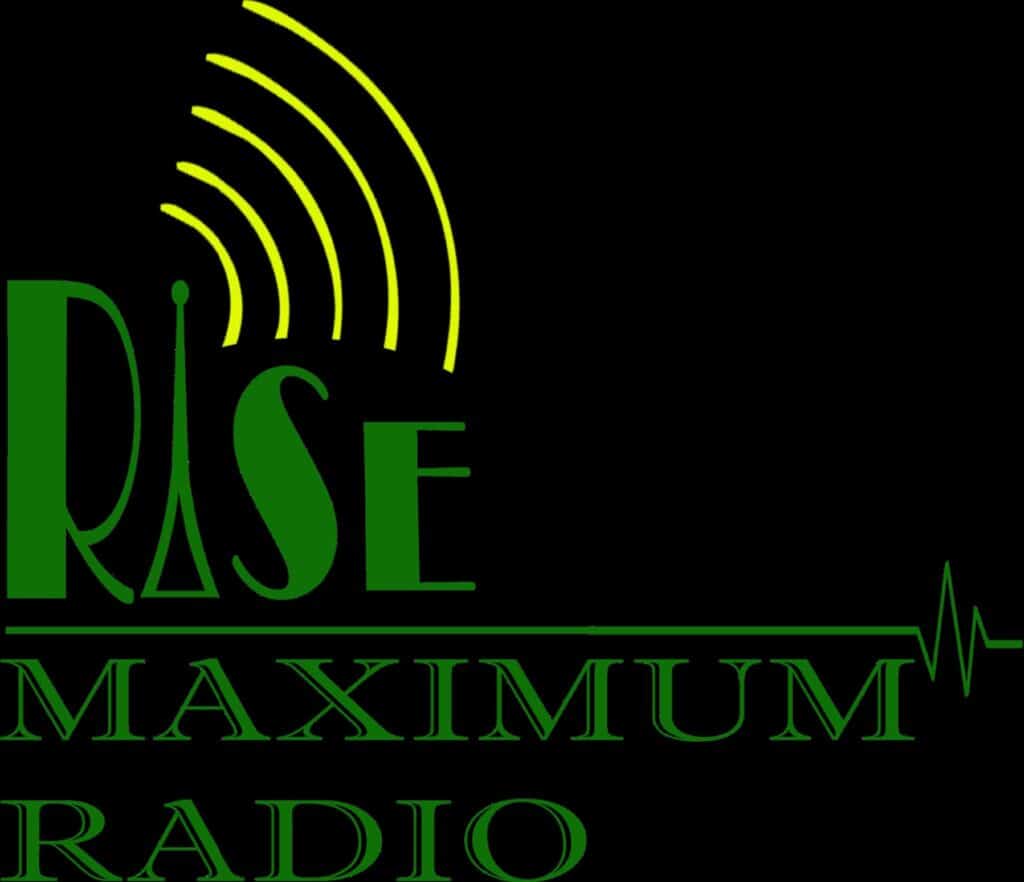
Project name: RISE Maximum Radio
Location: Trinidad and Tobago
Tell us about your project – when and how did it all start, and what is its purpose?
The project first germinated in 2009 when the hosts Garth St Clair and Natasha Nunez of the award-winning radio show Eye on Dependency extended an invitation to Phil Maguire, Chief Executive and Andrew Wilkie, Deputy Chief Executive of the UK-based Prison Radio Association (which runs National Prison Radio – the world’s first national radio station for prisoners), to visit Trinidad to advance the idea among prison and Ministry executives.
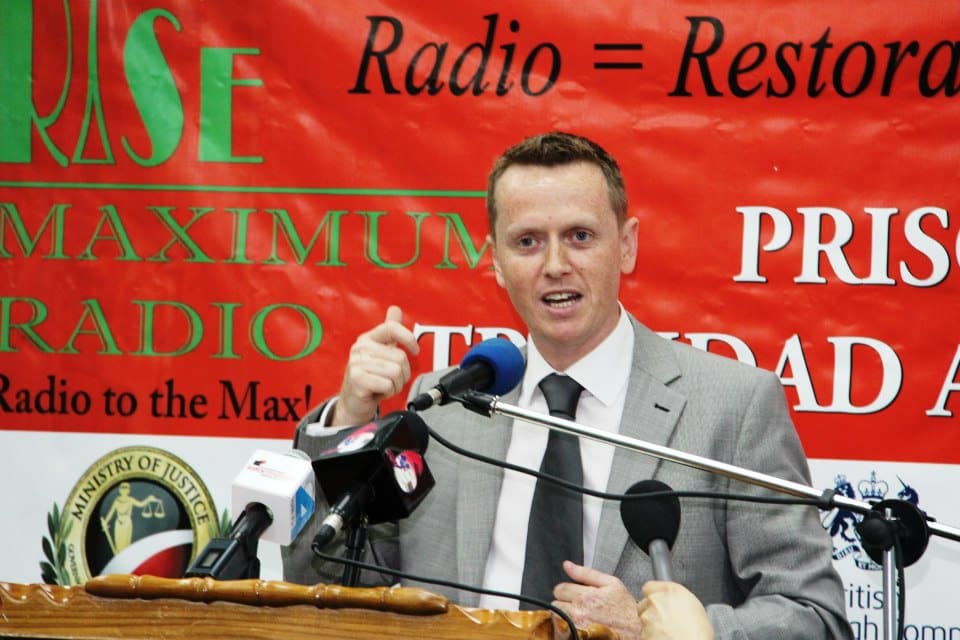
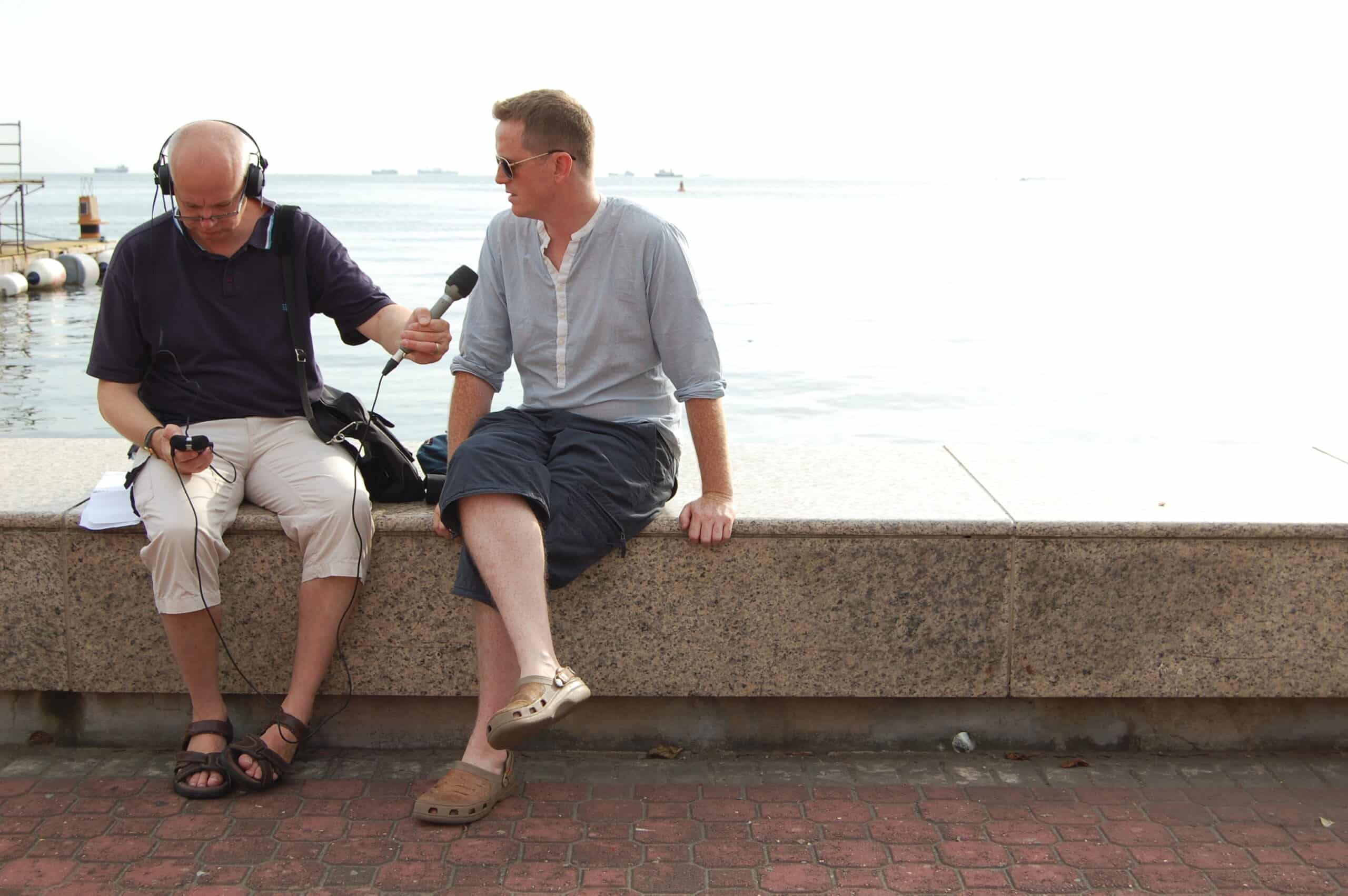
Phil Maguire, Chief Executive of the Prison Radio Association
In 2011, Phil and Andrew made a stirring presentation at a breakfast meeting attended by Ministers of Government, including Minister of Justice, executives of the Trinidad and Tobago Prison Service and other interested parties in the non-profit sector. Their trip to Trinidad and Tobago was sponsored by The British High Commission, one of the committed partners supporting Eye on Dependency’s work to highlight the stories of drug traffickers and promotion of restorative justice principles.
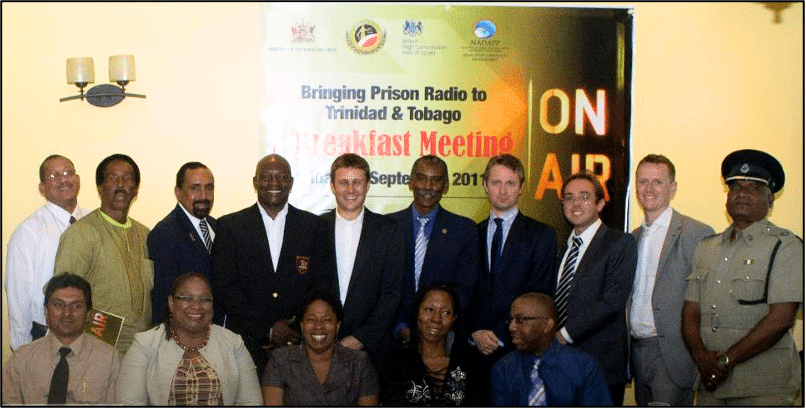
Group photo at the Breakfast Meeting in September 2011
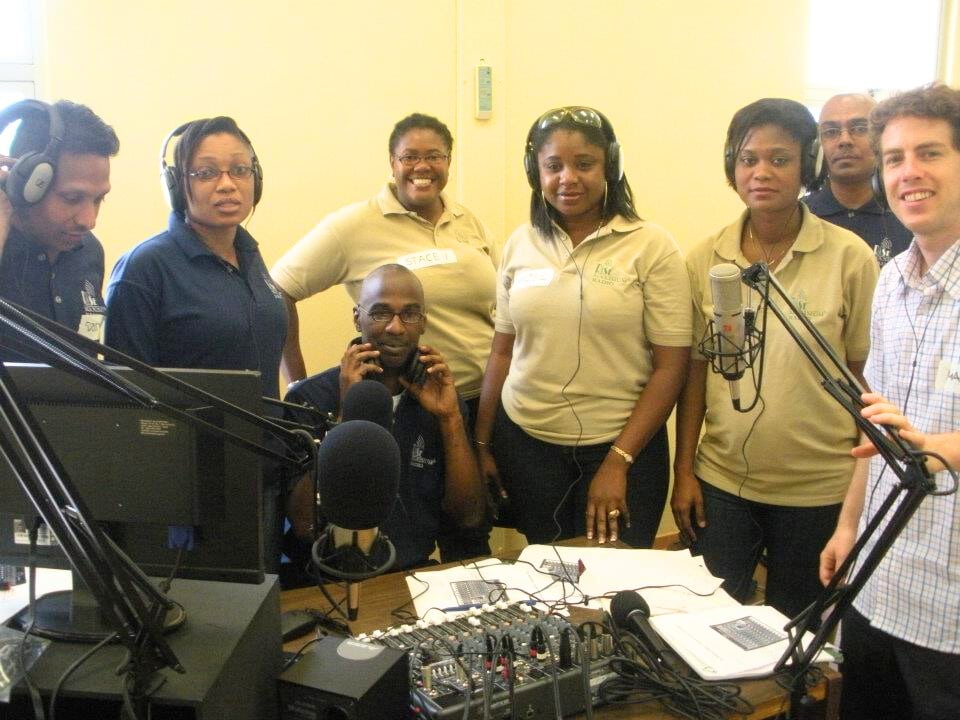
People in prison (in blue) and officers (in khaki) in a training session in 2012 led by Max Graef (R) of Radioactive Consulting Ltd.
RISE Maximum Radio was initiated to boost self-esteem and encourage positive engagement with people who are in prison and their families, aiming to facilitate successful reintegration into society.
The content is designed with rehabilitative interventions that are tailored to a prisoner’s specific criminogenic needs and risk level and delivered in a way that is consistent with their learning style, thereby more likely to be effective.
The station’s broadcasts are intended for the prison population, including both people in prison and officers. Since its launch in 2012, RISE Maximum Radio began streaming live on the internet via Zeno FM and Caster.fm and RISE Maximum Radio YouTube Channel thus enabling friends and family members of people in prison to be part of the programme.
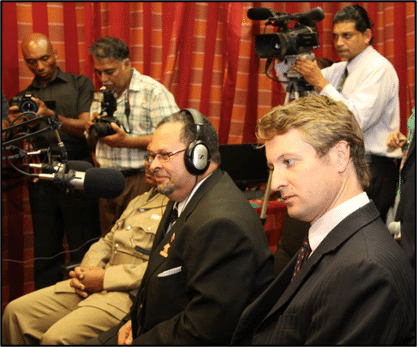
(L-R) Commissioner Martinez (partly blocked), Minister of Justice Herbert Volney and British High Commissioner Arthur Snell in the RISE Maximum Radio studio at the launch in September 2012.
How do people react when you tell them about your involvement with prison radio?
Society generally views prison radio positively, seeing it as a valuable tool for rehabilitation, education and skills development, and connection, promoting positive change and reducing reoffending rates.
Radio programs can address issues relevant to people who are in prisons lives, promote social values and norms, and encourage positive behaviours.
By providing access to information and resources, prison radio can help people in prison prepare for release and reintegrate into society.
It can provide a platform for people in prison to share their stories, perspectives, and experiences. By highlighting positive role models and showcasing success stories, prison radio can inspire hope and motivation.
It’s a genuinely rewarding feeling to hear feedback from people who are in prison, family members and others about the good work and positive effects RISE Maximum Radio has on their lives.
What kind of impact has your project had on people involved with the criminal justice system?
RISE Maximum Radio is all about transforming attitudes and behaviour and the reintegration of persons into society:
“As an inmate working at RMR, it has impacted my life in many ways. I was able get a lot of experience. I became computer literate; I learned to read news and became a Broadcaster. Working at RMR has made me a better person. I have learnt how to interact with other inmates, being a positive example of change and good role model.” Grace Cupid, an inmate at RISE
“Since I started working a RMR, I was able to establish a healthier emotional mindset by having something meaningful and beneficial to look forward to daily. Being part of RMR has opened doorways and avenues that I would not have thought possible during my incarceration.” Dwayne Baldeo, an inmate at RISE
Once a month, questionnaires are distributed at all prisons to gather information from the target audience. The data collected facilitates and improves our delivery and programming decisions regarding people in prisons’ criminogenic and rehabilitative needs.
How has your project influenced public opinion or the broader community outside of prison?
Through RISE Maximum Radio’s Caster.fm and Zeno FM platforms, persons outside prison walls are happy to follow prison radio to feel a part of the prison community.
Our Request Programme allows friends and family of people who are in prison to send inspirational and motivational quotes, messages and songs for their loved ones. RISE also hosts a WhatsApp group where persons can send voice notes. Hearing the voices of loved ones expressing love, care and support makes people in prison emotional but heartened that they are not isolated from those important connections.
What’s been the most unexpected challenge, and how did you overcome it?
The most unexpected challenge to prison radio is the public understanding how important a tool RMR is in rehabilitation.
We strive to overcome the challenge by ensuring quality programming and content is delivered to help people in prison change their mindset in preparation for reintegration. Another key ingredient is continually reinforcing and rewarding the dedication of the team of prisoners and officers that create and deliver the content to the audience.
What’s your secret to keeping the project going?
Running a prison radio project can be incredibly challenging, but it’s also a powerful way to foster connection, communication, and creativity within a closed environment.
The secret to sustainability and engagement lies in strong planning, a committed team and a focus on relevance and collaboration.
Some key tips we can share include:
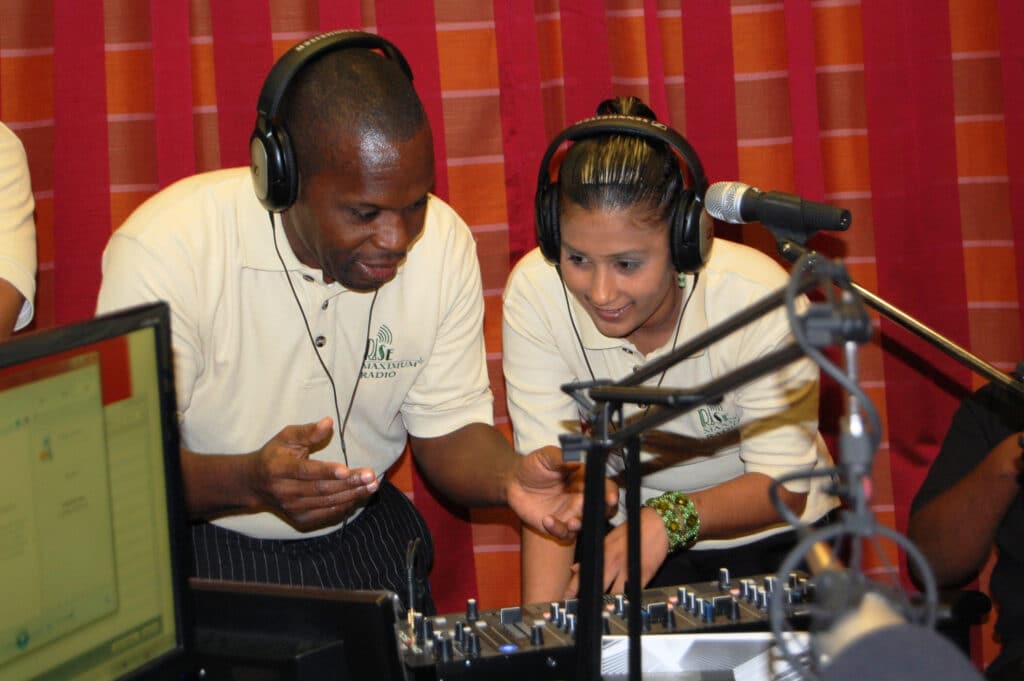
– Establish Clear Goals and Purpose
– Develop a Strong Team
– Focus on Training
– Engagement with the Audience
– Content Variety
– Promote Internal and External Collaboration
– Ensure Consistency
– Adapt and Evolve
Rise Maximum Radio at the controls
Do you have a favourite production/programme/show/interview?
All programmes are uniquely designed to cater for chromogenic needs, so topics such as Spirituality, Health, Drug Addiction, Mental Health, Welfare, Diet, Public Defenders, Family Request, and more are addressed.
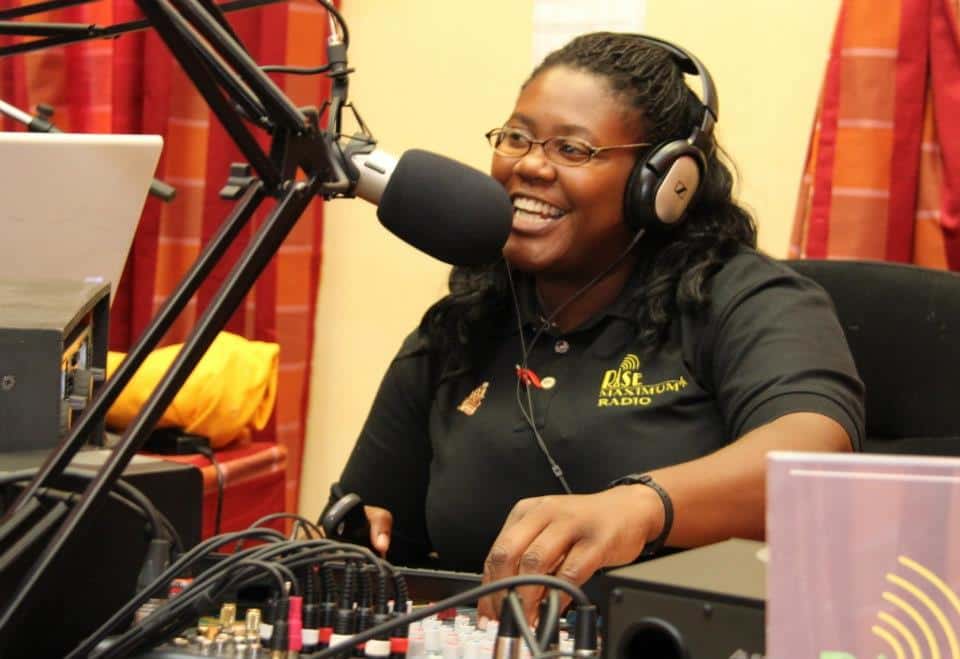
Prison officer at the controls
The right to communication is often taken for granted. What do you think the role of prison radio is in upholding this right, and why is it so essential for the voices of people in prison to be heard?
While radio can provide a connection to the outside world, it can also lead to isolation if people in prison don’t have opportunities for positive interaction with others.
The impact of listening to prison radio on the well-being of people in prison can be profound. Programmes can help people in prison to control anxiety, anger, emotional distress, and promotes strong self-esteem.
Our surveys show that listening to the RMR has a positive impact on people in prisons’ outlook, the atmosphere of the prison, and peer relationships. We conclude that the practice of prison radio reflects the prison administration, reducing feelings of hostility and anger on the part of the people in prison and promoting trust among prisoners and between them and the staff.
If you had to give one piece of advice to a new prison radio project, what would it be?
The idea of having a radio station behind prison walls may be a very hard sell to prison officers and the public at large. In some jurisdictions, the idea behind prison for some, is to have individuals as uncomfortable and regretful as possible, so a radio station may seem like a luxury, rather than a tool of rehabilitation.
In this regard, the initiative must be properly presented to the Ministry or Department in charge of the penal institutions, following which the agency must give its full endorsement and instructions passed onto the Warden, Governor or Commissioner who will then present this initiative to the Executive with full approval.
From there all prison officers should be brought on board, fully understanding how the radio station will benefit them in their responsibilities to ‘hold and treat’ which is the motto of the Trinidad and Tobago Prison Service. They must understand the importance of having and fully supporting this unique tool of rehabilitation. The trickle-down effect is very important to ensure not only acceptance, but the benefits to both officers and prisoners.
What’s your vision for the future of your project?
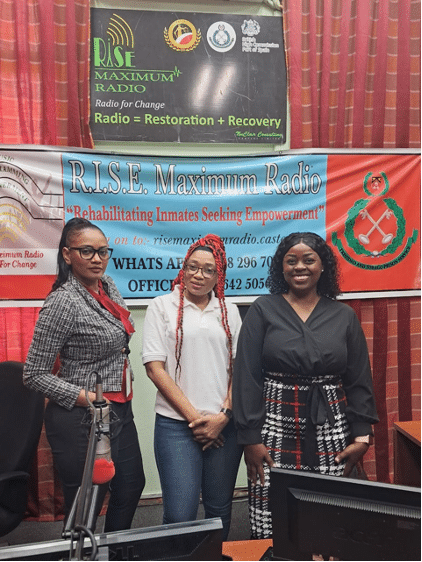
– Expanding the listenership of RISE Maximum Radio to all prisons in Trinidad and Tobago
– Upgrading of the studio space and equipment
– More outreach programmes involving people in prison and their families
(L-R) Vanessa Agard, Natasha Deleon, Kinda Daniel
Finally, is there anything else you’d like to share with the international prison radio community?
Rise Maximum Radio, its staff (prisoners and officers) and the Trinidad and Tobago Prison Service is very pleased to be accepted as part of the Prison Radio International (PRI) family. We will continue to follow the model set by the PRI and will continue to support this ever-growing and expanding institution.
With much love, from Trinidad and Tobago!
You can listen to PRA Chief Executive Phil Maguire presenting a programme for the BBC World Service about the launch here.
At Prison Radio International we know why prison radio matters. We know that quality prison radio improves and even saves lives. It provides a lifeline of communication for people in prison and their loved ones. It fosters understanding, challenges harmful narratives, and contributes to a more informed public dialogue about how we respond to criminal harm.
We know that, when done well, prison radio gives incarcerated people agency. It creates meaningful dialogue between those who run prisons and those who live in them. It can even help incarcerated people influence how prisons are run.
By supporting the development of prison radio worldwide, we want to see prisons become less damaging places, better equipped to support people through incarceration and into life after release.
If you haven’t completed our Global Prison Radio Survey yet, click here to join our community network now!
Stay connected with Prison Radio International:
X/Twitter: @prisonradioINTL
Instagram: @prisonradioINTL
The Prison Radio Association is a registered charity. Our work helps people cope with life in prison and succeed after release. You can support us by donating at: prison.radio/donate.